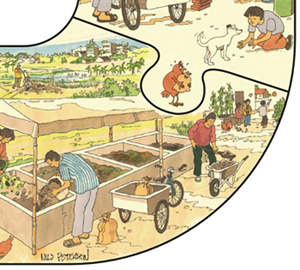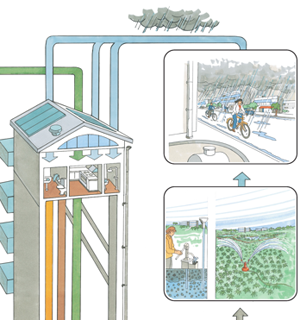Ecological Sanitation (EcoSan)
Human faeces and urine contain a large amount of nutrients, which can be used in agriculture for crop irrigation, for fish aquaculture, or aquatic vegetable pond fertilization. In many cultures, for example the Chinese, the idea that 'waste is too valuable to waste' is well known. In many other cultures however, sanitation products are hardly used for productive use, although interest is growing.
Ecological Sanitation (EcoSan) has led to more interest in the sanitation field. When sanitation products are reused, great care has to be given to dealing with the potential health and environmental risks of human waste products. Large-scale sewerage-based systems have significant drawbacks. Enormous investments are needed, operating and maintenance costs are very high, the water consumption is very large, and a large volume of waste is produced which can be costly to treat. Especially in arid zones, the water use is a problem. A second problem is that in cities, all kinds of waste are disposed of in the sewer, leading to a very varied mixture which is difficult to process. Ecological sanitation can both be applied in cities (often in public toilet blocks), and in peri-urban and rural areas.
| Ecosan is not so much a technology as a way of thinking. It views (treated) human excreta and greywater as valuable resources that can be put to productive use. In that sense, it requires a change of thinking about waste issues in terms of recycling and closing material loops, where waste is no longer regarded as waste but as a resource. |
In most conventional wastewater and sanitation systems, large amounts of valuable nutrients are wasted. This can lead to reduced soil fertility and/or the need to apply (and buy) chemical fertilizers. Therefore, applying ecological sanitation has a very large potential.
The Ecosan 5 Flow Streams
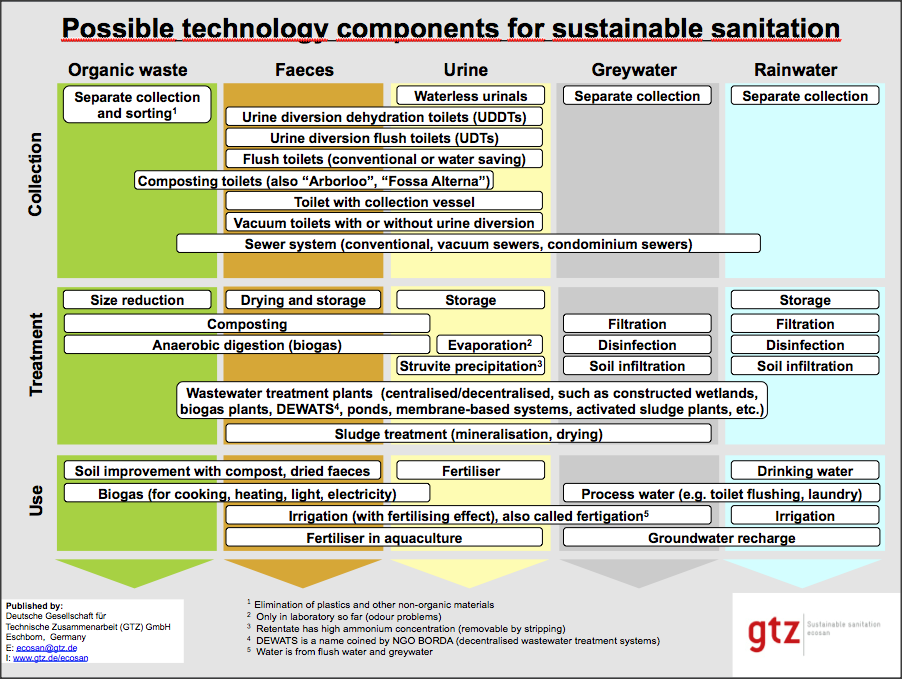
Field experiences
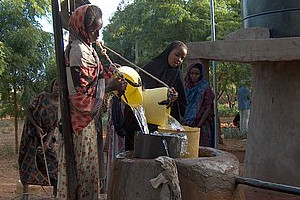 Safe water for Wajir] |
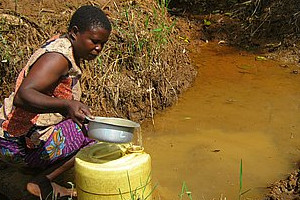 Rwenzori Integrated School WASH Project |
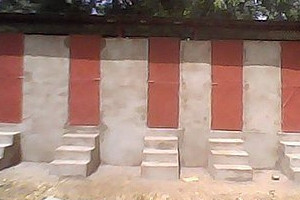 Eau Hygiène et Assainissement |
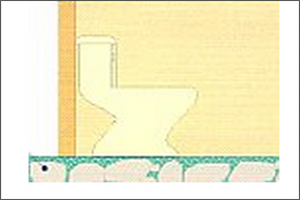 Basic Sanitation for Loja Province |
Videos & links
de ECOSAN |
Krishi Mela 2010 |
Sri Lanka |
- Ecological Sanitation on Wikipedia, with many links.
- GTZ: Possible technology components for sustainable sanitation Technology Matrix - an overview on the technology components which can be used in an ecosan approach
- EcoSanRes - Research on Econological Sanitation
- SuSanA - Sustainable sanitation for a better life. This website has interesting visual aids and technical drawings, and many links to studies on EcoSan in Africa.
- GIZ Sustainable infrastructure - Water
- Jackson, B. (2005). Review of EcoSan Experience in Eastern and Southern Africa. Water and Sanitation Program - The World Bank.
- UNESCO-IHE online course on Ecological Sanitation
- Ecological Sanitation pages at WASTE
- Ecosan Services Foundation - non-profit Ecosan consultancy.
- EcoSan information from Centre Régional pour l'Eau Potable etl'Assainissement à faible coût (CREPA) (in french).
